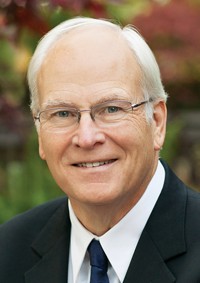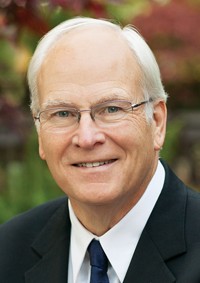Advertisement
Grab your lab coat. Let's get started
Welcome!
Welcome!
Create an account below to get 6 C&EN articles per month, receive newsletters and more - all free.
It seems this is your first time logging in online. Please enter the following information to continue.
As an ACS member you automatically get access to this site. All we need is few more details to create your reading experience.
Not you? Sign in with a different account.
Not you? Sign in with a different account.
ERROR 1
ERROR 1
ERROR 2
ERROR 2
ERROR 2
ERROR 2
ERROR 2
Password and Confirm password must match.
If you have an ACS member number, please enter it here so we can link this account to your membership. (optional)
ERROR 2
ACS values your privacy. By submitting your information, you are gaining access to C&EN and subscribing to our weekly newsletter. We use the information you provide to make your reading experience better, and we will never sell your data to third party members.
Policy
ACS Revamps Policy Statements
New ACS policy statements will be more detailed, offer concrete recommendations
by Linda R. Raber
January 28, 2008
| A version of this story appeared in
Volume 86, Issue 4

In March and again in April, as they do every spring, American Chemical Society volunteers will converge on Capitol Hill. They will visit members of Congress and congressional staffers in hopes of making a strong case for supporting science, technology, and education. This year, they will have in hand two new ACS policy statements, one on global climate change and one on science education, which contain specific, actionable recommendations.
The newly approved statements reflect a change in ACS thinking and its Board Committee on Public Affairs & Public Relations (PA&PR), which acts for the full board of directors in approving statements. In the past, official position statements treated issues with a broad-brush approach. The new statements are much more detailed. "There is a lot more specificity and depth," says Glenn Ruskin, head of the ACS Office of Legislative & Government Affairs (OLGA).
The new statement on global climate change doesn't mince words. It unequivocally states that human-induced global warming and other phenomena are having "current serious and potentially disastrous impacts on Earth." In it, ACS calls on the government for strong and immediate action.
For example, ACS recommends that lawmakers "reinvigorate and fully fund a comprehensive U.S. research program to better predict the impacts of climate change on regional, national, and global scales and to allow the systematic analyses needed to effectively design and evaluate mitigation and adaptation strategies." ACS recommends intense cooperation and collaboration with other nations on an aggressive Earth systems research agenda and urges that the necessary Earth-observing systems be developed.
Moreover, in this new statement, ACS strongly endorses reduction of greenhouse gases through "enhanced fuel economy for on-road and off-road vehicles, better insulated and more efficiently heated and cooled buildings, more efficient lighting, and more convenient and available mass transit." ACS also urges the government to support the study of a variety of alternative fuel technologies.
The new ACS position statement on education replaces a 14-page document that stressed educational philosophy. The new document is streamlined and offers specific actionable recommendations urging the government, for example, to "mandate at least three years of laboratory-based science for all secondary school students, integrated across the disciplines and throughout the secondary school years, and including a scientific ethics component." It also advises "establishment of tax incentives to encourage individuals to enhance their technical competence through continuing education, and support development of retraining programs for individuals whose careers have been impacted by economic restructuring and outsourcing."
The new statements are two of 25 active ACS position statements designed to respond to issues defined by the board of directors and enumerated in the society's public policy priorities. The priorities are subdivided into four general categories, and policy statements fit under those categories. In 2008, ACS priorities are to foster innovation through research and technology, invest in people, balance security and openness, and promote science and environmental stewardship.
For instance, under the heading of fostering innovation, ACS has seven statements designed to encourage the federal government to adequately fund research. One of those statements presents the society's position on the fiscal 2008 budget for the National Science Foundation: ACS "urges a budget increase to $6.43 billion, a $409 million increase over fiscal-year 2007."
The process of formulating an ACS position statement is a highly iterative one. Proposed statements typically respond to requests from policymakers, ACS members, or ACS governance. Committees usually take the lead in developing the statements, but statements may also be drafted by staff, members, divisions, local sections, or other ACS units. "Statements are considered only if they are determined to be of national importance," Ruskin says.

Once a policy is approved, it gets posted on the ACS website at www.acs.org/policy. OLGA also transmits it to relevant policymakers, media outlets, ACS members, and other organizations. Statements remain in force for three years unless repealed by the board; they can be renewed for three-year periods. All statements and related documents are on the ACS website.
It is important to ACS to have these statements approved and ready to go at a moment's notice. "I got a phone call several years ago, from Rep. Sherwood Boehlert (R-N.Y.), then-chair of the House Science Committee, asking if ACS could support his initiative to try to increase the corporate average fuel economy (CAFE) standards," Ruskin recalls. "So I went back and looked at our policy statements, and I saw clearly that it said efforts should be taken to increase the CAFE standards, so I said, 'Sure, we can support that.' I went to the Hill and met with Boehlert, came back, and we sent in a letter. We were one of just a few organizations that could do that because the statements are out there and ready," he says.
In addition to being handy for congressional visits and for those surprise calls like Boehlert's, all testimony of ACS presidents before Congress is based on approved position statements, so "the president can go before a committee in Congress and tell them that she or he represents the 160,000 members of ACS," says Immediate Past-President Catherine T. Hunt.
Hunt emphasizes that the president of ACS is a spokesperson for the society. "We're not there just espousing our own individual ideas," she says. "We offer the strength of all of our voices speaking for the society." She believes that one of the most important things ACS can do in support of its charter is "educating legislators, the Administration, and the public about the importance of science and technology."
Hunt suggests that position statements can be particularly effective items to leave behind after visiting a legislator's home office. Hunt says ACS members may have a greater impact by visiting district offices than by visiting Washington, D.C. "When you visit them in their district, you're a constituent and likely to make much more of an impression," she says. "In Washington, members of Congress can be overloaded."
This year, OLGA is gearing up to start a new State Government Affairs Program. Ruskin believes that the new policy statements will be very useful for targeted presentations. "We need to be able to give legislators what they want when they want it," he says. "ACS aims to be on the forefront of that effort."




Join the conversation
Contact the reporter
Submit a Letter to the Editor for publication
Engage with us on Twitter